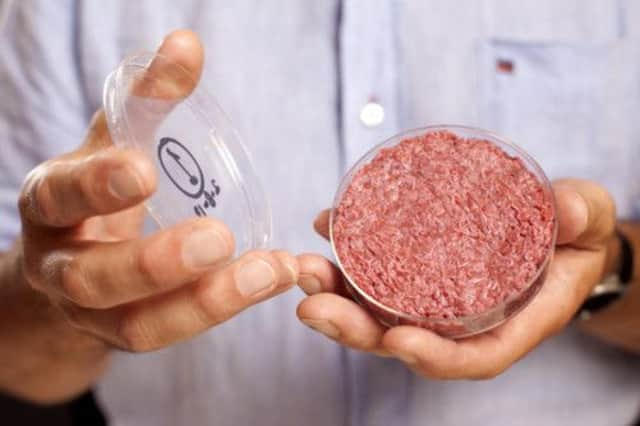Stephen Jardine: Lab-meat won’t cure world hunger


“£220,000 lab-grown burger is eaten for first time – but needed ketchup” was the headline in one newspaper, somewhat missing the point.
For a start, it’s not a burger in the sense that any of us understand the term. Rather, it is a collection of cow stem cells, cultured with nutrients to grow, then frozen, defrosted, coloured, shaped into a patty, cooked and served in a bun. Yum.
Advertisement
Hide AdAdvertisement
Hide AdExpressing concern about such Frankenstein food is loftily dismissed on the basis that the scientists responsible are trying to find a way to feed a hungry world.
However, a laboratory is not the place to find a solution to world hunger.
As some countries grow richer, their demand for beef and dairy grows as it is identified with western affluence, but just because a demand exists, it shouldn’t always be fulfilled.
At the moment, there is a shortage of Scotch whisky to meet global demand. No-one suggests the solution is to distil fake whisky, but when it comes to food, worldwide corporations see the potential of emerging markets and fresh demand. That is what lies behind this development and the potentially ticking time bomb of GM crops.
At the moment, we have around a billion hungry people in the world and the same number who are overweight or obese. That must tell us the real solution to feeding the world is better agriculture, distribution and access to markets, not mass manufacturing burgers.
The president of the International Fund for Agricultural Development says the way ahead is clear. “Africa can feed Africa. Africa should feed Africa and I believe that will happen” said IFAD president Kanayo Nwanze.
“For agriculture to yield the greatest returns, development efforts must focus on the smallholder farming sector.”
I’ve seen that for myself on the ground in Malawi. It’s not easy and it requires support and investment, but it is the only sustainable way for the world to feed itself. However, it doesn’t provide the easy headlines or get-rich-quick potential of a laboratory-grown burger, so doesn’t appeal to the giant corporations in the food world.
Advertisement
Hide AdAdvertisement
Hide AdSo if lab meat isn’t a sane solution to feeding the developing world, does it have any useful benefits for us in the lands of plenty? Some animal welfare groups have supported the experiments as a solution to animal suffering in the food chain.
Again, that misses the point. Thanks to recent supermarket scandals, we all have a clearer idea of what goes on in the food chain. If you don’t like the process of producing meat for the table, don’t eat it. Vegetables, fish, rice, pulses and pasta are the solution, not fake meat grown in a petri dish.